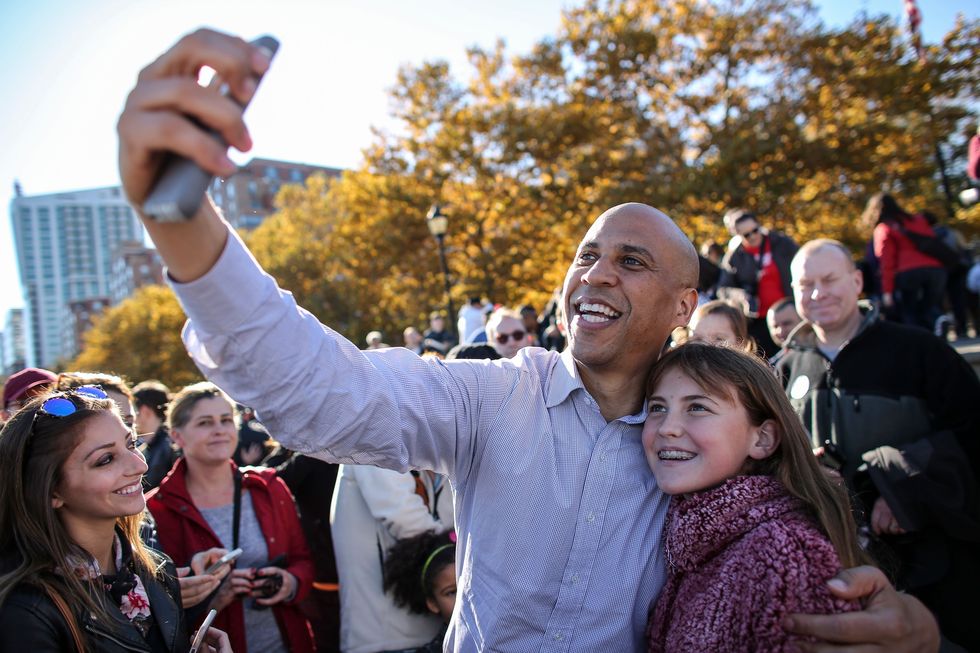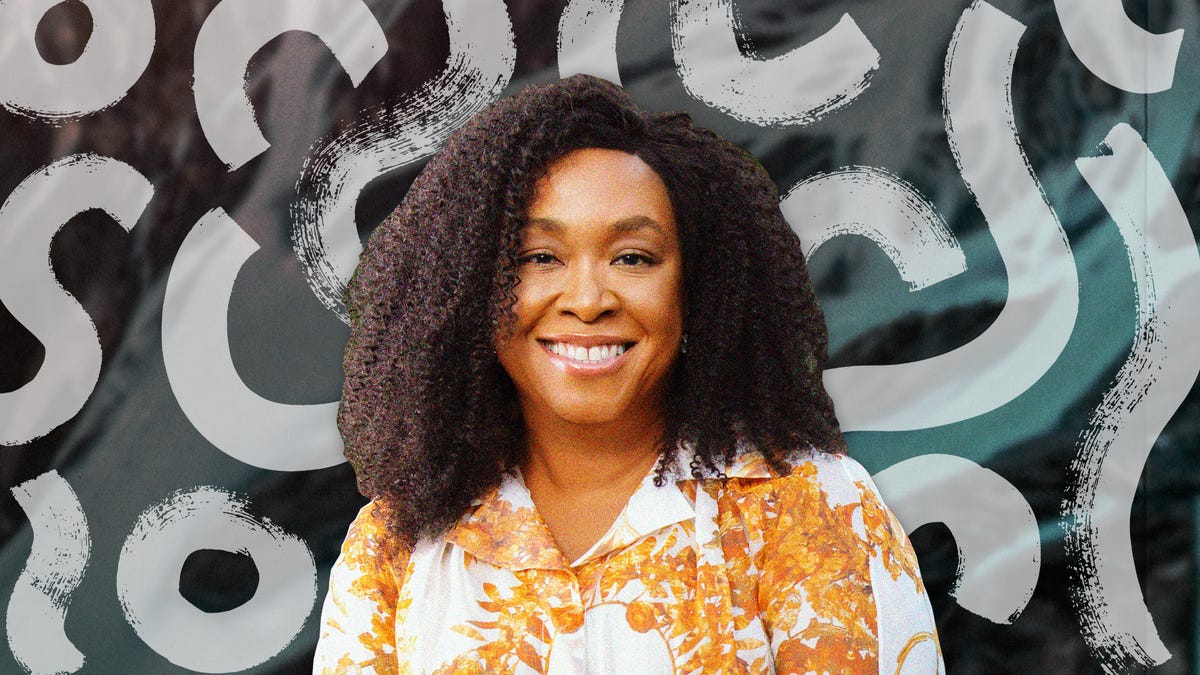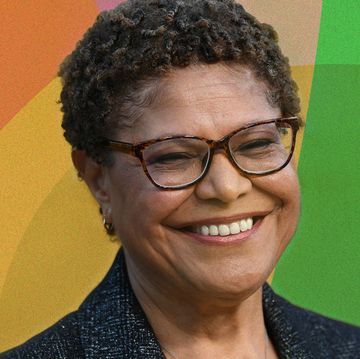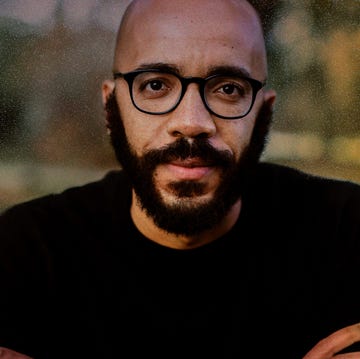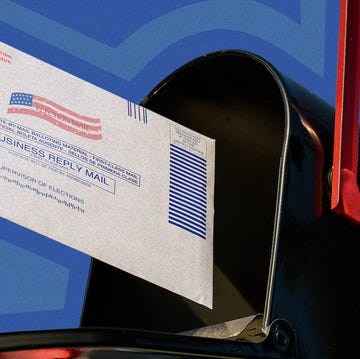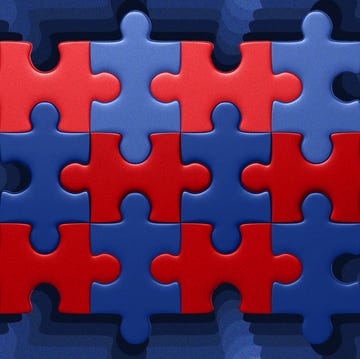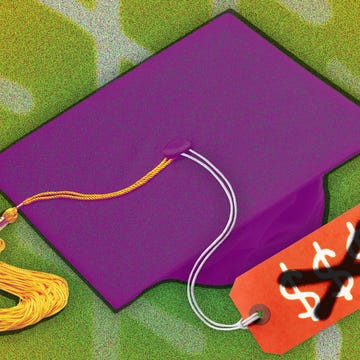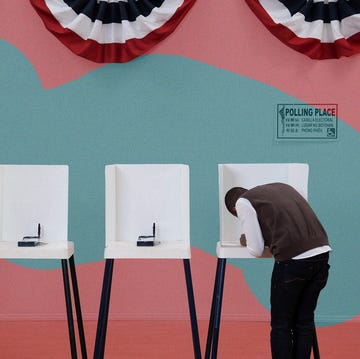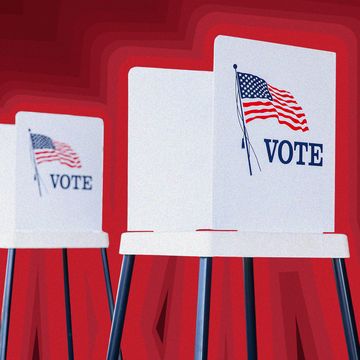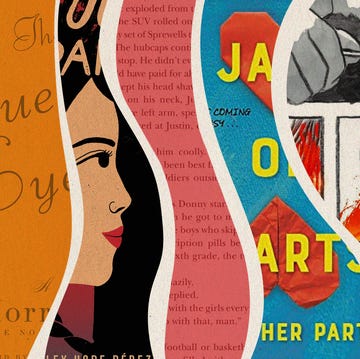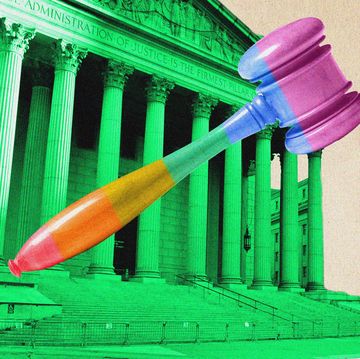When I get on the phone with Senator Cory Booker, it's 8 p.m. on a Monday evening. While most people have put work away for the day by then, the junior senator from New Jersey is still going. There's simply too much to do. Too much chaos to diffuse. Too much uncertainty to push through. Too much.
"I'm trying to be like so many Americans right now: a creative agent of change," Sen. Booker tells Shondaland. "I'm trying to be part of the leadership that's demanded of all of us. I'm trying to meet that demand by raising consciousness and helping our nation expand its circles of empathy for one another."
It's only been a few months since George Floyd's death at the hands of a white police officer sparked global outrage and ignited protests across the country that continue to this day. Booker is well aware that people are angry and hurting, and he knows that as an elected official, those same people are looking to him for action and change.
"If you cover up injustices of the past, you end up with mountains of injustice in the present, and that's unacceptable," Booker says. "Our nation is still learning about itself. Our ignorance of ourselves, of our history, of how we got to this present, make it harder to deal with. We have created this Disneyland version of our country, and it's really done a disservice for us."
He mentions Mississippi retiring its state flag with the Confederate emblem and the rebranding of Washington, D.C.'s NFL team as examples of cultural progress, but notes that the road ahead remains long and rocky.
"There's a process we're going through where Americans are better seeing each other and understanding the struggles," says Booker. "Whether you're Black, white, or whatever your background, we're all vested in this outcome. That's what makes a lot of the legislative work that I'm doing easier."
In early June, Booker and his Democratic colleague, Senator Kamala Harris of California, sponsored the Justice in Policing Act of 2020, a sweeping piece of legislation that would ban chokeholds, end no-knock warrants in drug cases, and make lynching a federal crime. It would also place limitations on "qualified immunity," a legal loophole that shields law enforcement officers from being personally liable for constitutional violations, including use of excessive force by police officers.
"The policing bill would not have been possible six months ago," Booker explains. "It's been this persistent activism and the awakening of a nation to itself that's helping us get momentum for legislation, but more momentum is needed."
Although the bill passed in the Democratically controlled House, it didn't gain much traction in the Senate. Even if it had passed in both legislative bodies, though, the Trump administration has threatened to veto the bill, effectively bringing everybody back to square one. Still, Booker remains hopeful because he believes in the power of the collective. If enough voices speak out and turn up the volume, these promising bills will become law one way or another.
"This time of racial reckoning can't stall," he says. "It has to expand and the conversations have to continue. Being pulled out of our comfort zones is such a critical part of the growth that we need to do."
For many Americans, between this long overdue racial reckoning and the coronavirus pandemic, 2020 has been a year of nonstop discomfort. A main source of stress for millions nationwide is their financial security, or lack thereof. Although Congress passed the CARES Act in March — providing economic lifelines like $1,200 stimulus checks, extended unemployment insurance, and a pause on federal student loan payments — many of these vital benefits have either been used up or will soon lapse unless Congress passes another round of aid.
How does Booker respond to people who are concerned about their economic future in the midst of this crisis?
"Their concerns are right, and we're trying to address them," he says. "We are in a deep recession, and the duration of this could potentially take us into next year and put a lot of families in a place of fragility or outright crisis. A lot of those elements of this upcoming COVID package are really critical, like extending unemployment insurance, getting another round of stimulus checks, and helping small businesses."
Last month, Booker introduced a bipartisan proposal that would make $50 billion in grants available to state and local governments for small businesses and nonprofits. The U.S. Chamber of Commerce supports the legislation, which would ideally zero in on gaps left by the Paycheck Protection Program. For instance, many businesses — particularly those owned by people of color — were essentially ineligible for the program because they lacked relationships with big banks, which administered the PPP loans.
"This virus has laid bare the baked-in challenges of race in America," Booker says. "There's a disparate impact as far as how African-Americans, Latinos, and Native Americans are being hit by this virus. Part of the strategy has to address that those populations are being disproportionately impacted by COVID."
Although Booker ended his presidential campaign in January, he's optimistic that the platform he ran on — one that seeks to find common ground and foster empathy — is more powerful and prevalent now than it was seven months ago.
"I ran for president with a very particular mission and message, which was this need for reconciliation," he says. "I think this pandemic and all the resultant crises that have come from it have created a more fertile ground for seeds of justice, seeds of compassion, seeds of empathy. What is making me feel a sense of promise in this moment right now is that I see and hear more and more people yearning for a more beloved community."
While it does seem like this awakening is unfolding across society and people are thinking ahead toward what a more developed, socially aware, and conscious country can look like, some folks remain disillusioned with the political process. A portion of the population might not even vote come November. And for them, Booker has a message.
"Our forefathers and mothers had far more reasons to be disillusioned than we do," he says. "I think about my friend John Lewis. His generation had a lot more reason to be disillusioned than we do. John almost got his skull cracked open, and yet he still seemed to believe that he could never let himself surrender to cynicism about the country."
Booker admits that he understands "the seduction to despair" and the frustration people have toward corruption in politics. What he doesn't understand, however, is why someone would choose to remove themselves from the democratic process when there's too much on the line.
"There are millions of Americans that live on the margins where the outcomes of elections depend upon whether they get to breathe clean air, that depend on whether they get a well-funded school or not," he says. "Our fight is not our own. So many people are going to depend upon what we choose to do in this moment in American history. We're at a crossroads of sorts: Will we be a nation that rises to higher ground together or will we sink in quicksand alone?"
Judging by the work he's trying to get done in Congress, it's clear Booker has already made his choice about what kind of America he wants to see in the future.
Mekita Rivas is a Washington, D.C. based writer and editor. In addition to Shondaland, her writing has been published in The Washington Post, Architectural Digest, Food & Wine, Wine Enthusiast, Glamour, Brides, Self, Refinery29, and others. Follow her on Twitter @MekitaRivas.
Get Shondaland directly in your inbox: SUBSCRIBE TODAY

